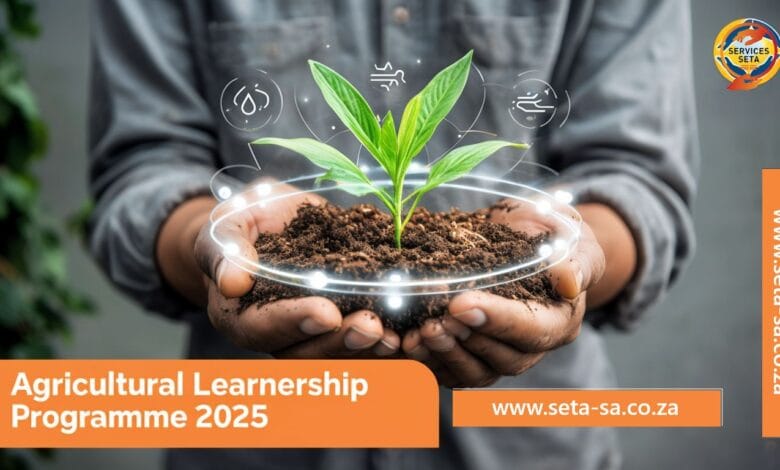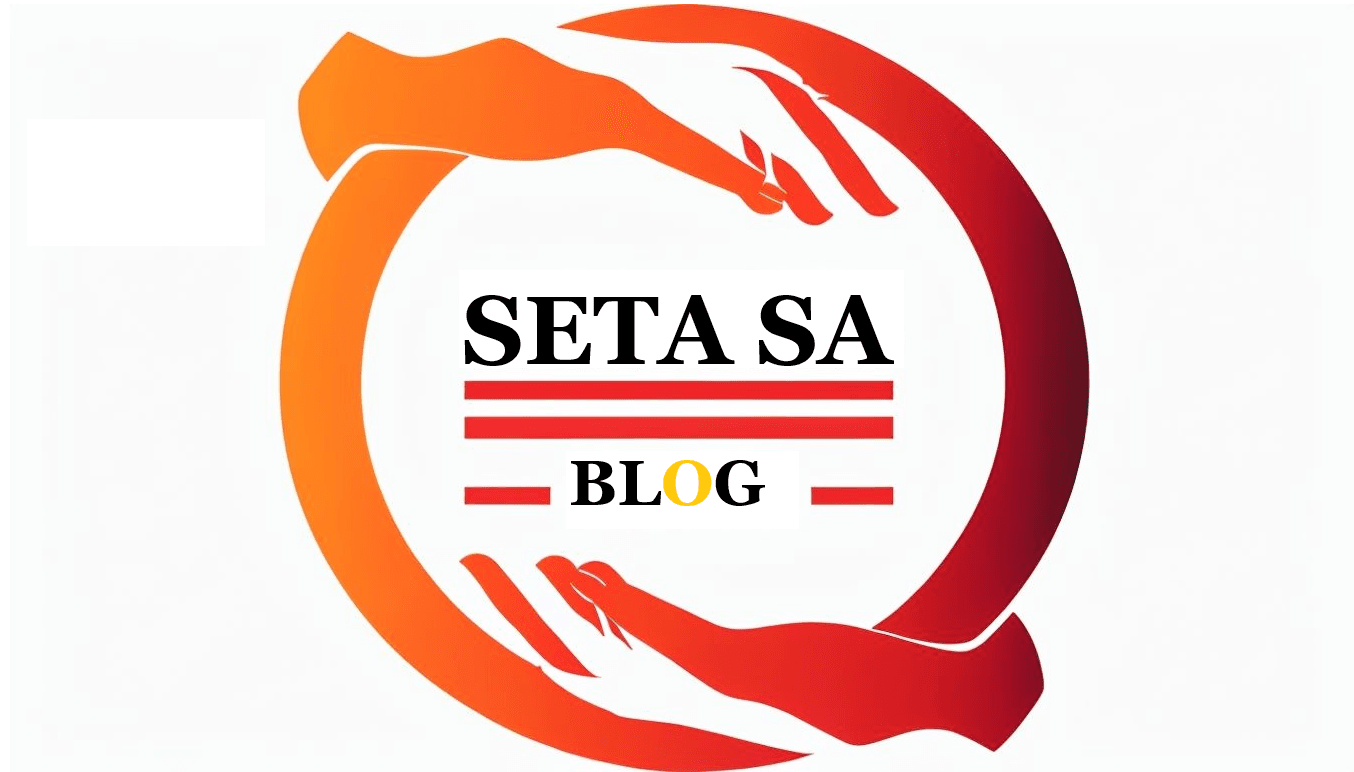SETA-Accredited Agricultural Learnership Programmes 2025 in South Africa

Agriculture is booming in South Africa, and if you’re looking for a chance to earn while you learn, the SETA-accredited agricultural learnership programmes 2025 could be your golden ticket! These government-approved training programmes are not only free of charge, but they also give you real workplace experience, a national qualification, and sometimes even a monthly stipend.
This guide breaks down everything you need to know about these exciting opportunities — from how to qualify to what to expect day-to-day, and even how much you might earn while learning.
What is a SETA-Accredited Learnership?
A learnership is a structured training programme that combines theory (in the classroom) and practical experience (on a farm or in the field). It’s designed to help you gain skills and earn a qualification registered on the National Qualifications Framework (NQF).
SETA, which stands for Sector Education and Training Authority, ensures that the training providers and employers follow strict quality standards. For agriculture, this is handled by AgriSETA.
These learnerships are endorsed by the Department of Higher Education and Training, making them nationally recognized and credible.
Why Choose Agriculture in 2025?
Agriculture isn’t just about planting crops. It’s about technology, sustainability, food production, and economic development.
Here’s why agriculture is a hot career choice for 2025:
- 🌍 Food Security is becoming a national priority.
- 📈 The agricultural sector is expected to grow by more than 4% annually.
- 👩🏽🌾 There’s a huge demand for skilled young people in farming.
- 🔧 Opportunities in agribusiness, mechanisation, hydroponics, and agro-processing are booming.
With climate change and economic shifts, those trained in modern, sustainable agriculture are going to be key players in shaping South Africa’s future.
Top 10 Benefits of Agricultural Learnerships
- National Certificate (NQF Level 1–4)
- Practical work experience in farming
- Monthly stipend (R1,500–R3,000)
- No tuition fees – it’s fully funded
- Build your CV with hands-on experience
- Pathway to permanent employment
- Access to government support and grants
- Learn essential life and business skills
- Chance to become a smallholder farmer
- Mentorship and career guidance
Many graduates even go on to start their own farms or agribusiness ventures after completing a learnership.
Eligibility Criteria
To apply for a SETA-accredited agricultural learnership in 2025, you’ll need to meet these requirements:
- ✅ Be South African (with a valid SA ID)
- ✅ Be between 18 and 35 years old
- ✅ Have a minimum Grade 9 or higher (varies by programme)
- ✅ Be unemployed and not studying full-time
- ✅ Be willing to learn and work in agriculture
Priority is often given to youth, women, and people with disabilities.
Popular SETA-Accredited Agricultural Programmes
AgriSETA offers a range of learnerships that cover different aspects of agriculture. Here are some of the most popular ones:
📚 Crop Production Learnership
- Focus: Planting, harvesting, soil science, pest control
- Duration: 12 months
- Certification: NQF Level 1–4
🐄 Animal Production Learnership
- Focus: Livestock handling, breeding, feeding, disease control
- Duration: 12 months
- Great for: Aspiring farm managers, vets, animal care workers
🌱 Mixed Farming Learnership
- Combines crop and animal training
- Prepares you for diverse roles
- Includes business skills and entrepreneurship training
How to Apply in 2025
Ready to get started? Follow these steps:
- Visit the AgriSETA website or your nearest TVET college.
- Look for available learnership advertisements (usually Jan–March).
- Prepare your documents.
- Submit the application online or in-person.
- Attend an interview or assessment if shortlisted.
Pro tip: Register on platforms like SAYouth.mobi for free job alerts and opportunities.
📎 Required Documents for Your Application
When applying for a SETA-accredited agricultural learnership, you’ll need to prepare a few important documents. Having everything ready increases your chances of being accepted quickly.
Here’s what most programmes require:
| Document | Details |
|---|---|
| ✅ Certified ID Copy | Must be a clear, certified copy (not older than 3 months) |
| ✅ Highest School Qualification | Grade 9, 10, 11, or 12 (depending on programme requirements) |
| ✅ Updated CV | Keep it short – 1–2 pages, with relevant experience or career goals |
| ✅ Proof of Residence | Recent utility bill or affidavit from a local authority |
| ✅ Affidavit (Unemployed Status) | Some programmes require proof you’re currently not working or studying |
| ✅ Medical Report (if applicable) | Especially if you declare a disability – some programmes offer special support |
TIP: Keep both digital and printed versions of your documents ready, especially if applying online and in person.
🕒 Duration and Structure of Learnerships
Most agricultural learnerships under AgriSETA last between 12 to 18 months. The time is split between classroom learning and on-the-job training, offering a solid foundation for working in real agricultural environments.
A typical structure looks like this:
| Phase | Details |
|---|---|
| 📘 Theory | Offered at a TVET college or AgriSETA-accredited training centre |
| 🔧 Practical Training | Carried out on farms, agri-businesses, or research facilities |
| 📝 Assessments | Includes projects, tests, and workplace observations |
| 🎓 Graduation | Successful learners receive a National Certificate (NQF Level 1–4) |
Key topics covered:
- Soil preparation and irrigation
- Pest and disease management
- Agribusiness principles
- Environmental sustainability
- Communication and teamwork on a farm
Good to know: Some programmes may also include basic computer training and financial literacy modules to empower future entrepreneurs.
🏫 Accredited Training Providers
To ensure the learnership you choose is legitimate, only apply to programmes from AgriSETA-accredited institutions. These can be public or private, as long as they meet SETA quality standards.
Trusted providers include:
- TVET Colleges – Public colleges offering agricultural programmes (e.g., Lovedale, Motheo, Boland)
- Private Training Centres – Such as Buhle Farmers’ Academy and AGRICOLLEGES International
- Employers/Farms – Some farms are also registered to provide training alongside employment
You can verify any provider via the AgriSETA database or ask for proof of accreditation before applying.
💸 Monthly Stipends and Support
One of the biggest perks of joining a learnership is that you get paid while learning. These stipends are meant to cover basic needs like transport and meals.
Here’s what you can expect in 2025:
| Level | Typical Monthly Stipend (ZAR) |
|---|---|
| NQF Level 1 | R1,200 – R1,500 |
| NQF Level 2–3 | R1,500 – R2,200 |
| NQF Level 4 | R2,200 – R3,000 |
Note: These amounts are not salaries – they’re meant to support you during training. Some programmes also offer transport, meals, uniforms, or safety equipment for free.
🎓 Career Paths After Learnership
Once you’ve completed your agricultural learnership, the sky’s the limit! You’ll walk away with practical experience, a qualification, and often a reference from your employer.
Career Opportunities Include:
- 🧑🏾🌾 Farm Assistant or Supervisor
- 🐖 Animal Care Technician
- 🪴 Greenhouse/Hydroponics Operator
- 🌽 Agricultural Extension Officer
- 🛠️ Irrigation Technician
- 💼 Agri-sales or Agro-processing roles
- 📈 Entrepreneur (start your own farm or small business)
Many successful learnership graduates go on to study further or start their own small farms with help from organisations like NYDA and SEDA.
🧗 Challenges and How to Overcome Them
While learnerships offer great benefits, they can come with a few challenges — especially for rural youth or those without internet access.
Common Challenges
| Challenge | How to Overcome It |
|---|---|
| 🌐 Lack of internet access | Visit public libraries or TVET colleges to access free internet |
| 🗂️ Missing documents | Request help from local councillors or NGOs to get affidavits, etc. |
| 🚗 Travel to training centres | Apply for local or residential programmes when possible |
| 😕 Confusing application process | Ask for help from career centres, youth desks, or older learners |
Remember: Learnerships are for you, and support is available. Don’t let obstacles hold you back!
💬 Real-Life Success Stories
Let’s look at how real young South Africans have transformed their lives through agricultural learnerships:
Thabiso M., 26 – Free State
“I joined the crop production learnership in 2022. Today, I run my own tomato greenhouse and employ two others. It all started with that first step!”
Nomvula K., 23 – Limpopo
“I knew nothing about farming, but now I have a certificate and a full-time job as a dairy assistant on a commercial farm.”
These are just two of thousands of stories that prove these programmes are life-changing.
🌐 External Resources and Support
If you’re serious about applying, here are some useful sites and organisations to check:
- ✅ AgriSETA – Official info, providers, learnership updates
- ✅ SAYouth.mobi – Free youth job network
- ✅ NSFAS – Study funding if you plan to study further
- ✅ NYDA – Grants for youth businesses
- ✅ Skills Portal – Learnerships, jobs, and advice
❓ Frequently Asked Questions (FAQs)
1. Are SETA-accredited learnerships free?
Yes, they are 100% free. Government and employers cover the costs.
2. Can I apply if I failed Matric?
Yes. Many programmes accept learners from Grade 9 upwards, depending on the NQF level.
3. Do I get a job after the learnership?
There’s no guarantee, but many learners are offered jobs where they trained or start businesses.
4. Can I apply to more than one learnership?
Yes, but if you’re accepted to one, you must commit fully.
5. Is there an age limit?
Most programmes accept learners between 18–35 years.
6. When do applications open?
Most learnerships open between January and March, but check year-round on platforms like SAYouth.mobi.
✅ Conclusion
The SETA-accredited agricultural learnership programmes 2025 offer real opportunity for South Africa’s youth. Whether you dream of working on a large-scale farm, becoming a technician, or starting your own agribusiness — it all starts with a single step.
With zero fees, certified training, and a monthly stipend, this is one of the best ways to build your future, even if you don’t have Matric or experience.
👉 Don’t wait. Visit AgriSETA or your nearest TVET college and apply today!





